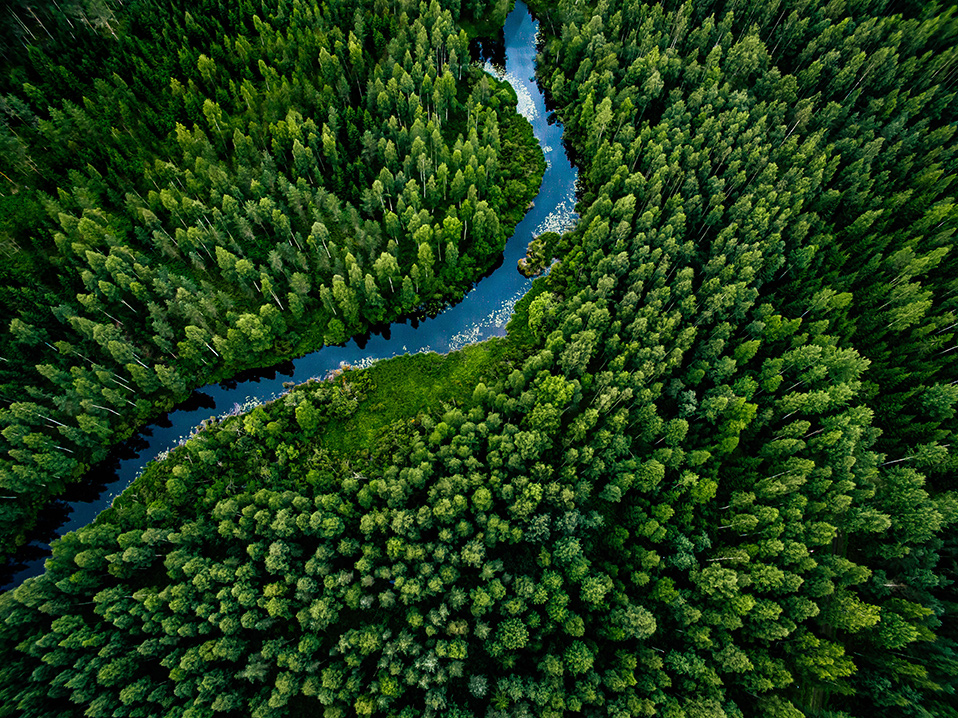Chiara & Gérard El Allaf talk to us about their philanthropic project, an effort guided by passion and embodying their personal values. Their objective is to develop an eco-village at the heart of one of the richest biodiversity corridors* in the world – Paso de la Danta in Ojochal, Costa Rica.

Chiara & Gérard El Allaf
"By acquiring land in this rich biodiversity corridor, we are protecting pristine rainforest and through our specific actions, our aim is to create a respectful place, attuned to nature, to the forest and to the local cultures and populations."
Gérard: It started with a life-changing experience in the Amazon rainforest with a group of indigenous people. This experience changed my outlook and made me question my purpose. I was an entrepreneur, providing online business and commerce solutions, which was intense, extremely exciting and sometimes stressful. After this experience, I felt the need to focus on something different, something meaningful and to reconnect with nature. I want to share this new sense of purpose with as many people as possible.
Chiara: I am an anthropologist and I have been living and working in Costa Rica for 16 years. I studied the culture, particularly women’s role in what is often a matriarchal society and spent a number of years living with the indigenous people here. Gérard and I share a similar vision: the importance of living in harmony with nature and this project gives us the opportunity to put this in practice and to protect the ecosystems in one of the richest biodiversity corridors in the world – Paso de la Danta in Costa Rica.
By acquiring land in this rich biodiversity corridor, we are protecting pristine rainforest and through our specific actions, our aim is to create a respectful place, attuned to nature, to the forest and to the local cultures and populations.
Our project is multi-faceted but the importance of nature sits at its heart. The rainforests in Costa Rica host unmatched biodiversity and are under attack by agricultural industry – particularly palm oil which is a real scourge or mono crops such as banana or pineapple - and by the resulting chemical pollution. One of our most important goals is to preserve these lands but also buy back and reforest land that has been destroyed through cattle farming or other uses. We recently planted over 3000 trees, of which over 150 different species.
In this unique place, home to 500 different types of birds, we are building a fully sustainable eco-village where we can live in harmony with nature, where inhabitants can eat and drink from the land and everything is run on green energy. We have 27 springs, fruit trees and we are growing our own food through permaculture – we plan to open a permaculture school to help spread this method. We want to test a new way of living that can be studied by universities and governments and hopefully replicated.
Within this eco-village we will be opening a retreat where people can come on a short-term basis, turn off their phone, explore their inner-self, appreciate nature and the sky, whilst exploring consciousness through meditation, yoga, and silence.
The village will have a music studio and a gallery so we will be hosting artists in residence. It is also important for us to work with the local population to offer them economic opportunities, especially women.
We have also set up an alternative school, which promotes a philosophy of non-violence and allows students to practice yoga and meditation in addition to the curriculum. We also deliver workshops in other local schools.
A lot has changed since the start of the project. It has been an amazing journey and an exploration of the self, allowing us to get to know ourselves better while being of service to others. Life has also become simpler: I like to say I am just a little gardener. When I was a CEO, I had dreams of conquering the world with my business but today I am happy just being a simple gardener. With more and more disasters befalling the natural environment, there is so much unconsciousness and a real urgency to act now. In playing our role, we feel we are having an impact and bringing positive change.
Follow your intuition!
Take the time to slow down and listen to your intuition and to others. As we move forward, we realise that the project knows where it wants to go by itself. It is about listening and following the signs, which will guide us in the right direction and it is important to reduce the influence of your personality and the ego.
When things get tough, do not forget what motivated you to start with. Keep it at the front of your mind. Moreover, whilst it is good to have a plan with a timeline, this should be more of a guideline rather an imperative.
The individual philanthropy advisory team has been extremely helpful in its advice; it was an amazing discovery to find out that the bank has a philanthropy advisory department. It has been particularly useful in the contacts it has given us. Our adviser introduced us to the King Baudouin Foundation, a host foundation that is providing us with a legal structure in Europe. This gives our supporters based in Europe access to the tax advantages linked to philanthropy whilst supporting our project in Costa Rica. As the team’s expertise does not include fundraising advice, our adviser put us in touch with fundraising consultants who are helping us in our ambitions. This is only the start of our collaboration with the team.
*A biodiversity corridor is an area of uninterrupted vegetation allowing wildlife to travel from one habitat to another. Protection of these corridors is a new strategic way to fight the ever-increasing threats to biodiversity.

